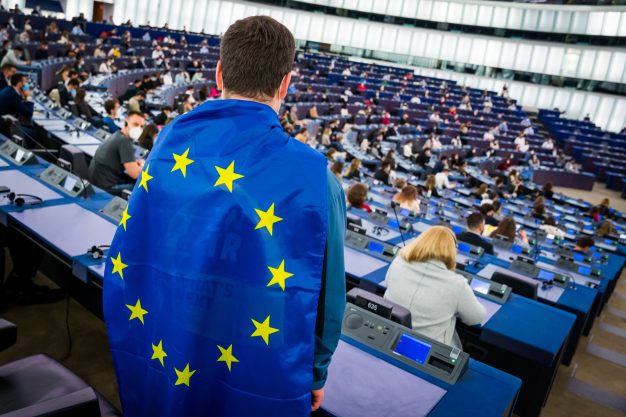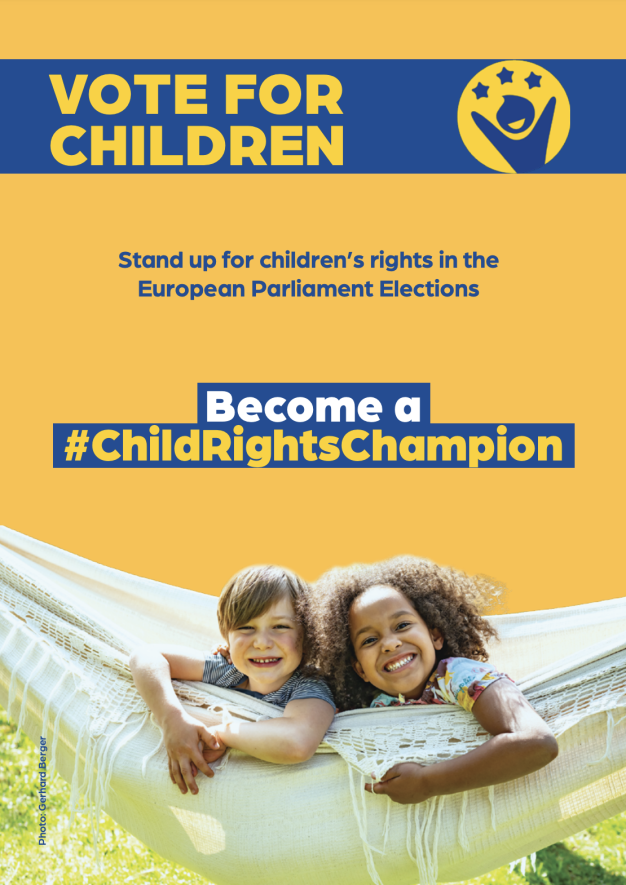
Stand up for children’s rights in the upcoming EU Elections
A coalition of children’s rights organisations has called on future European parliamentarians to stand up for young people.
After a survey of young people threw up a number of concerns for their futures, the aim of the #VoteforChildren campaign is for children’s issues to top the agenda at the forthcoming European Union elections.
More than 20 key stakeholders, including charities, are looking to help mobilise prospective candidates to really think about how they can support the rights of young people throughout the next legislative term.
The manifesto has set out a series of concrete measures designed to address the challenges facing children and young people in Europe now and in the coming years. Children’s voices, it says, should be heard and their rights protected at ‘every level of decision-making’.
“The coalition wants to see a European Union that delivers for ALL children by mainstreaming and protecting children’s rights, breaking the cycle of poverty and inequality and engaging with children,” it adds.
UNICEF, Eurochild, World Vision, Save the Children, Defence for Children International and Families for Europe are just some of the organisations involved in the coalition. Anyone who wants to sign the Child Rights Manifesto can do so here.
The message to future parliamentarians from the coalition is loud and clear, saying: “As a future Member of the European Parliament (EP), we urge you to put children’s rights at the heart of your mandate. Your future work to protect children within and outside the European Union must be enshrined in the rights, values and recommendations of the UN Convention on the Rights of the Child..”

The recent launch event at the EP saw the publication of the Europe Kids Want survey, which threw up some interesting feedback from young people about their concerns and aspirations.
Over 9,200 respondents spoke about issues including education, mental health, bullying and violence. In the current global context where high-profile conflicts in Ukraine and the Middle East continue, it’s perhaps no surprise that a large number of respondents, around 80 per cent, said they were particularly concerned about the spread of global conflicts.
Around half said that they do not feel safe online, while just over a third (36 per cent) of LGBTQI+ children indicated that they don’t feel safe in their homes.
Children also highlighted a sense of ‘hopelessness and lack of trust’ in what they see as the will of politicians to tackle climate change. Over half (56 per cent) also believed that their opinions had a very limited impact on decisions taken.
“Politicians are not interested in children because they cannot vote. This is why they are not aware of our problems. They believe that we will grow up and our problems will disappear”.- said Harry, 14, from Bulgaria.
“We are the present, not the future, we are here.”- Valentina, 15, from Croatia.
The #VoteforChildren campaign will last until the EU Elections, when a new class of child rights champions will be tasked with their most important job: realise an European Union for and with children.
The #VoteforChildren campaign runs until the EU Elections, which take place from 6-9 June. After that, say organisers, a ‘new class of child rights champions will be tasked with their most important job: realise an European Union for and with children’.




